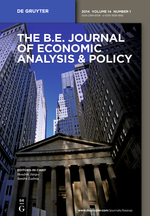“Inter-Ethnic Friendship and Hostility between Roma and Non-Roma Students in Hungary: The Role of Exposure and Academic Achievement” by Tamás HAJDU, Gábor KERTESI and Gábor KÉZDI was published in The B.E. Journal of Economic Analysis & Policy.
Abstract
This study examines friendship and hostility relations between Roma students and the ethnically homogeneous non-Roma majority in Hungarian schools. Using data on friendship and hostility relations of 15-year-old students from 82 schools, the study focuses on the interaction between exposure to the other ethnic group and academic achievement of Roma students. High-achieving Roma students are shown to have significantly more friends and fewer adversaries than low-achieving ones, due to better inter-ethnic relations while having similar within-ethnic group relations. As a result, higher exposure to Roma students translates to more friendship and less hostility from non-Roma students in environments where more of the Roma students have higher achievement. Therefore, policies helping the achievement of Roma students can have immediate as well as long-term positive effects. Simulations suggest that a mixed policy of desegregation and closing the achievement gap may best foster positive inter-ethnic relations.


